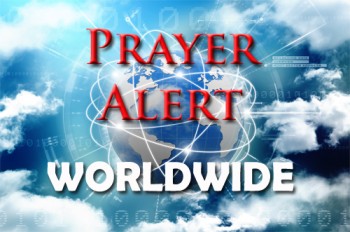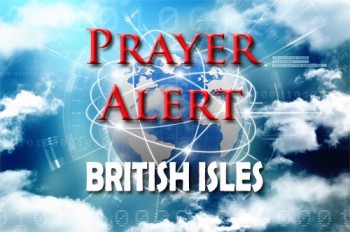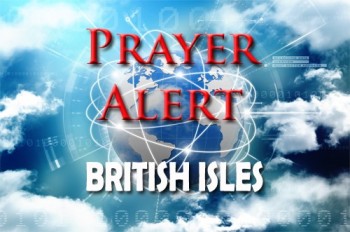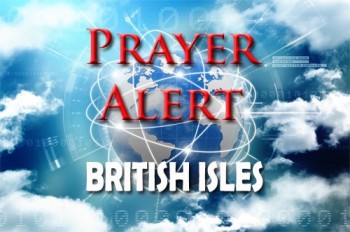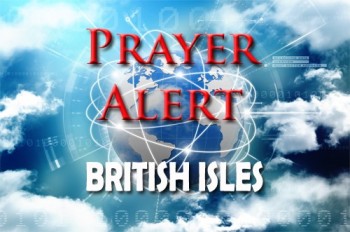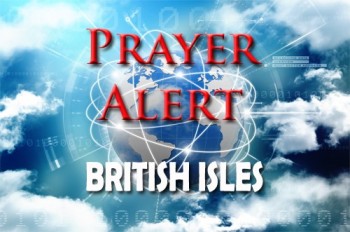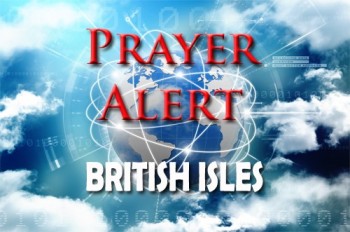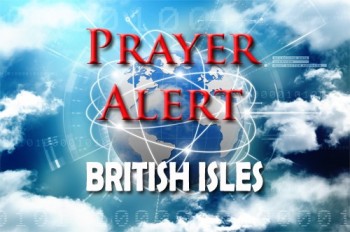
David Fletcher
David Fletcher is Prayer Alert’s Editor.
He is part of a voluntary team who research, proof-read and publish Prayer Alert each week.
If you would like to make a donation towards our running costs, please click here.
Bishop Samson Shukardin of Hyderabad told Aid to the Church in Need that abuse was an issue for minority students at public schools. He said that Christian parents in the country are resorting to giving their children Islamic names to prevent them suffering ‘abuse’ at school. With Islamic names, they will not be singled out as Christians and become potential targets for discrimination in primary or secondary schools or colleges. The bishop said that even school textbooks portrayed minorities in a negative light, and they are considered as infidels. The fundamentalists believe that Islam is the only complete religion - that salvation is only found in the Qur'an as the last holy book. Therefore most minorities, particularly Christians, are persecuted, and some religious minorities are at risk of being kidnapped.
In order to increase the number of people praying for the nation, the Wartime Miracles leaflet has been posted to 25,000 UK churches. In an easy-to-read format, this leaflet helps Christians to intercede with a greater faith by giving examples of dramatic deliverances the Lord gave in answer to prayer during the Second World War. For example, many Christians today are not aware that the English Channel became like a millpond 24 hours after a national prayer day was held on 26 May 1940. It was this calm which enabled little boats to rescue large numbers of soldiers from the Dunkirk area.
This week, Quakers are describing their personal faith journeys. 'Quaker Stories’ is the theme of this year's Quaker Week. These stories will be shared on social media, using the hashtags #QuakerWeek and #QuakerStories. Alistair Fuller, of Quakers in Britain, said, ‘They are planting seeds of renewal for the world they love. Every year, we encourage Quakers to share what their faith means to them. This year we are telling the stories of how they live out their faith in the world, and how this can challenge, inspire and transform us.’ See
Having addressed the Conservative Party conference, Boris Johnson has also delivered new Brexit proposals to the EU. These included plans to replace the backstop, with Northern Ireland staying in the European single market for goods, but leaving the customs union - resulting in new customs checks. Mr Johnson has explained the proposals to MPs, and will update the House of Commons next week. Michael Gove said that the government had given ‘serious proposals’ to the EU; however, one EU spokesman has described them as ‘gravely concerning’, and other commentators are sceptical. The UK hopes to begin a period of intense negotiations, with the aim of reaching a final agreement at the EU summit on 17 October. Let us pray for God to drench European leaders with His strategies as they discuss their response to the latest Brexit plan.
Halloween is a great time to share the hope of Jesus with all those who come knocking at your door. Each ‘bag of hope’ from UCB and World Vision contains a full-colour, Bible-based booklet and activity sheet. Picture the scene. It is 31 October, the night is drawing in, and the doorbell rings. The Christians in the house know it will probably be trick-or-treaters, so they have two choices. They can pretend not to be in (dim the lights, quick!) or they could greet callers with a big smile and a brand new bag of hope. The bags are free and suitable for children aged 5 to 10. Praise God for the Christian input on that day with church light parties, and resources like the bags of hope.
‘If the foundations are destroyed, what can the righteous do?’ (Psalm 11:3) Beneath the turmoil and conflict in nation and church is a crumbling of the biblical foundations that have supported both through many centuries. As we teeter on the edge of an abyss, pray that believers will be able to see beyond the news and understand the time from the Lord’s perspective. Pray that He will call out a faithful remnant characterised by radical discipleship, loving fellowship, and humble service. Pray for rural believers to understand their calling to light beacons of prayer and make places of sanctuary. Britain’s green and pleasant land has a dark side which is getting darker. While overall crime rates are falling, drug crime is increasing in small towns and villages. According to NFU Mutual, rural crime hit a seven-year high in 2018, with farmers bearing the brunt. Pray to the Father to deliver us from evil, and for His peace to reign in the countryside.
1 October was ‘The International Day of Older Persons’, a day to remind people to stand against ageism and promote a society hospitable to all ages. Older people play a significant role in society as leaders, caretakers and custodians of tradition. They are also vulnerable, with many falling into poverty, becoming disabled, or facing discrimination. As health care improves, the number of older people is growing. Their needs are also growing, as are their contributions to the world. Louise Morse from Pilgrim’s Friends Society says that ageism is also a problem within churches where there is a pastor for younger people, a youth worker, but nothing to make reality of the ideas of older people. ‘If you think about it, God takes the whole of our lives to hone in us the attributes that older people have.’
A BBC teaching video states that there are 100, if not more, gender identities as well as male and female. Among the ‘trusted adult’ speakers is transgender activist Leo Lardie, and the 9- to 11- year- olds appear uncomfortable as she talks about her genitals. She says that people who criticise transgenderism ‘don’t know any better yet’. A gay head teacher tells the youngsters they should not just accept differences between people but ‘celebrate them’. Finally, the children are threatened into conforming by being told that ‘people can go to prison if it is shown they’re disrespecting or being hateful to people because of a difference that person perceives’. Coalition for Marriage said, ‘These claims are nonsensical. The video series is supposed to help teachers deal with sensitive subjects in age-appropriate and honest ways. It does neither.’ Meanwhile a Christian mother is mobilising parents against LGBT lessons.
A study by religious education teachers has reported more schools failing to meet UK legal requirements around religious education provision. 40% of community schools without a religious character failed to meet requirements to provide RE, up from 34% last year. 50% of academy schools with a religious character skipped RE provision for ages 14 to 16. UK state schools are required to provide RE lessons to everyone, regardless of whether they have chosen the subject for GCSE. However, 64% of age 14-15 and 59% of age 13-14 had received no RE at Key Stage 4. Many schools were getting away with making no RE provision because of ‘failing’ accountability structures. In some schools where RE was provided, parents took steps to remove their children from the lessons. 80% of schools did not plan to make GCSE RE short course entries in the 2018/19 academic year.
In an attempt to be more 'inclusive', North Somerset Council voted last week to abolish its Christian prayers before council meetings, also rejecting a proposal to replace them with a period of ‘reflection’. Christian Legal Centre's Michael Phillips commented ahead of the vote, ‘If we remove every last vestige of Christianity, we are really left with nothing. When we turn our backs on what is good, we are left in a complete and utter mess.’

